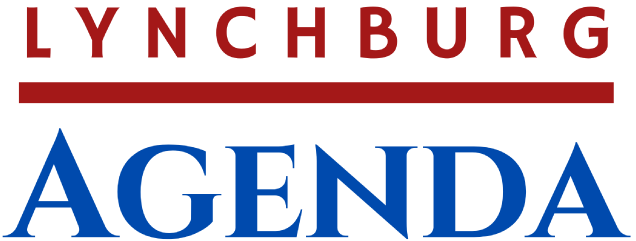Lynchburg City Council Amends Bow Hunting Ordinance to Address Deer and Coyote Populations
Recently the Lynchburg City Council voted to amend the city ordinance regarding bow hunting (Sec. 27-67.3), introducing several important updates aimed at enhancing wildlife management efforts and providing greater flexibility for hunters.
In a recent Agenda article, the deer population throughout Greater Lynchburg has surged to levels prompting city-led efforts to control and reduce their numbers. The article highlights the significant consequences of an unchecked, overpopulated deer population.
You Live Near Coyotes (whether you know it or not)
The ordinance also addresses the "nuisance species" coyote population which has a continuous open hunting season. While coyotes do play some roles in the ecosystem, many residents would gladly see their numbers reduced—or even eliminated—given the risks they pose by preying on pets and potentially spreading parasites. Ask Gregory Logwood of Altavista whose beloved dog Dutchess that could not survive a coyote(s) attack just last week. Read More Here
Not native to Virginia, coyotes migrated from the west in the early 1980s, disrupting what was previously a balanced ecosystem. Although they offer some pest control by limiting rodent and fox populations and function as scavengers, these benefits are outweighed by the challenges they create. Balancing both deer and coyote populations are essential for maintaining Greater Lynchburg’s ecological health.

Key Changes Effective Immediately:
- Coyote Hunting Permitted: Hunters can now bow-hunt coyotes on approved private properties within city limits, aiming to mitigate the increasing nuisance posed by the coyote population.
- Reduced Height Requirement: The minimum height for discharging a bow in deer and coyote hunting has been lowered from 12 feet to 8 feet, enhancing accessibility for hunters while maintaining safety.
- Streamlined Permit Process: No new permits are required under these updates, as local Conservation Police Officers from the Department of Wildlife Resources (DWR) have been informed.
Permits
On October 10, the Lynchburg Police Department’s IT unit updated existing bow permits to reflect these changes, including the reduced height requirement and coyote addition. Additionally, bow permits will now be valid for two years. For properties permitted before October 10, the two-year period will start with the next hunting season.
Regulations
The ordinance mandates compliance with Virginia state laws and Virginia Department of Wildlife Resources regulations, specifically prohibiting hunters from discharging arrows from, over, or across any street, sidewalk, alley, or roadway. Hunting on city-owned parks and public recreation areas remains prohibited.
The city is also working to designate specific city-owned properties for future hunting access and will establish a permitting process accordingly. Until the process is complete, hunting on city-owned properties will not be permitted.
Regulations for coyote hunting with a shotgun on parcels of 25 acres or more remain unchanged during the state’s firearms season; shotgun hunting is still restricted to deer. Virginia law prohibits hunting over bait and the feeding of deer from September 1 to the first Saturday in January (4VAC15-40-285).
What You Can Do in the Meantime

Until hunters get fully engaged with the new hunting changes, there are several steps we can all take to help. With deer populations surging and coyotes increasingly posing risks to pets, the Virginia Department of Wildlife Resources recommends the following:
- Do Not Feed Wildlife: Feeding animals, intentionally or unintentionally, can attract unwanted species and increase encounters with coyotes and other wildlife. Read more here.
- Secure Trash Properly: Keep trash indoors until the morning of pickup or use animal-proof containers like metal cans with latches on the lids.
- Avoid Leaving Pet Food Outside: Keeping pet feeding areas clean and indoors prevents attracting coyotes and other wildlife.
- Remove Bird Feeders if Needed: Take down bird feeders if problem species are seen gathering around them.
- Seal Building Openings: Close all entry points into buildings to prevent animals from denning or raising young inside.
- Clear Fallen Fruit: Remove any fallen fruit around trees to avoid drawing wildlife into your yard.
- Trim Brushy Areas: Clearing overgrown areas reduces cover for coyotes.
- Supervise Small Pets: Keep small pets indoors or on a leash when outside. Coyotes may view them as prey, and larger dogs could be seen as threats, particularly from January to June during coyote mating and pup-rearing season.
- Inform Neighbors: Wildlife feeding in your neighborhood—directly or indirectly—can impact the entire community. Pass along these tips to help reduce issues.
- Install Coyote-Proof Fencing: This can protect unsupervised pets by preventing coyotes from entering your yard.
By working together and following these tips, residents can help manage wildlife encounters and minimize risks until hunting efforts can assist in population control.





Related Posts
City of Lynchburg to Conduct Budget Public Hearing (Apr. 22)
Apr 07, 2025
Lynchburg Humane Society Awarded Rachael Ray Grant to Help Save Pets
Apr 05, 2025
The Great Green Dust Storm of 2025
Apr 03, 2025